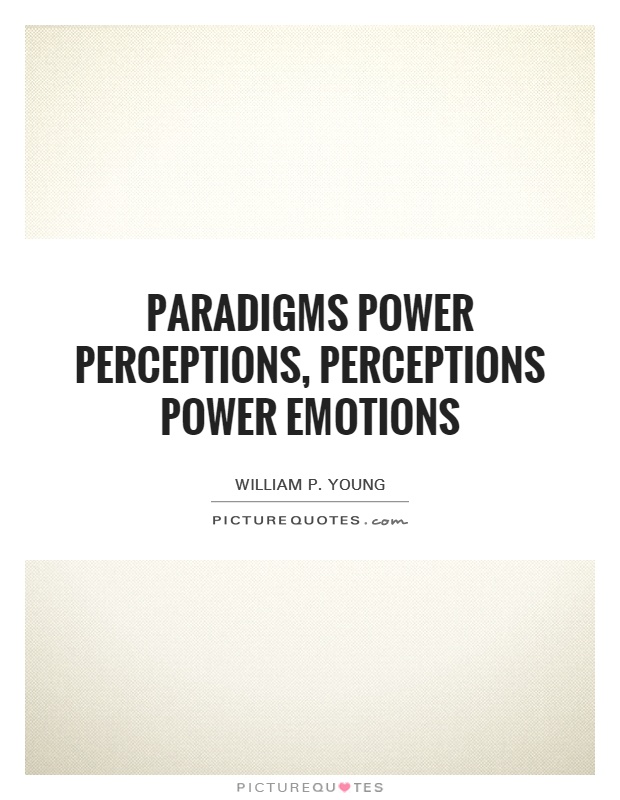Paradigms power perceptions, perceptions power emotions

Paradigms power perceptions, perceptions power emotions
In the context of William P. Young, the author of the bestselling novel "The Shack," the idea that paradigms power perceptions and perceptions power emotions is a central theme that runs throughout his work. Young's writing often challenges readers to examine their own beliefs and preconceived notions, encouraging them to see the world from a different perspective.In "The Shack," Young tells the story of a man named Mackenzie Allen Phillips who is struggling with the tragic loss of his daughter. Through a series of encounters with God in the form of three individuals representing the Holy Trinity, Mack is forced to confront his own beliefs about faith, forgiveness, and the nature of God. The novel explores how our perceptions of God and the world around us are shaped by our paradigms – the mental frameworks through which we interpret reality.
As Mack grapples with his grief and anger, he is forced to confront the ways in which his perceptions have been influenced by his past experiences and cultural conditioning. Through his interactions with God, Mack begins to see that his understanding of God as a distant and judgmental figure is a limited and flawed perspective. As he opens himself up to a new way of seeing, Mack's emotions begin to shift, leading to a profound transformation in his inner life.
Young's exploration of paradigms, perceptions, and emotions in "The Shack" serves as a powerful reminder of the ways in which our beliefs shape our reality. By challenging readers to question their own assumptions and biases, Young invites us to consider how our perceptions of ourselves, others, and the world around us impact our emotional responses and ultimately shape our lived experience.












 Friendship Quotes
Friendship Quotes Love Quotes
Love Quotes Life Quotes
Life Quotes Funny Quotes
Funny Quotes Motivational Quotes
Motivational Quotes Inspirational Quotes
Inspirational Quotes